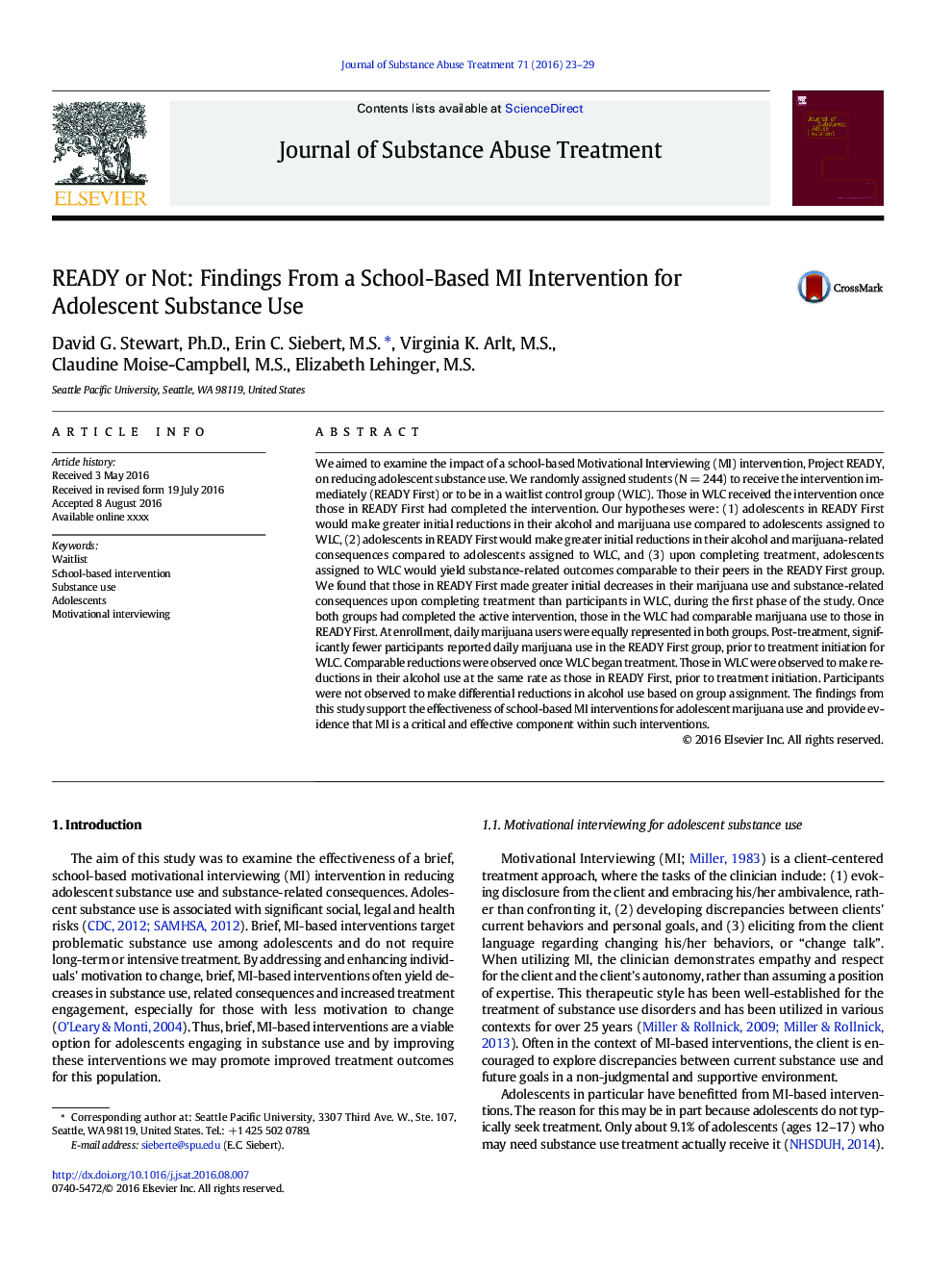| Article ID | Journal | Published Year | Pages | File Type |
|---|---|---|---|---|
| 4932288 | Journal of Substance Abuse Treatment | 2016 | 7 Pages |
Abstract
We aimed to examine the impact of a school-based Motivational Interviewing (MI) intervention, Project READY, on reducing adolescent substance use. We randomly assigned students (N = 244) to receive the intervention immediately (READY First) or to be in a waitlist control group (WLC). Those in WLC received the intervention once those in READY First had completed the intervention. Our hypotheses were: (1) adolescents in READY First would make greater initial reductions in their alcohol and marijuana use compared to adolescents assigned to WLC, (2) adolescents in READY First would make greater initial reductions in their alcohol and marijuana-related consequences compared to adolescents assigned to WLC, and (3) upon completing treatment, adolescents assigned to WLC would yield substance-related outcomes comparable to their peers in the READY First group. We found that those in READY First made greater initial decreases in their marijuana use and substance-related consequences upon completing treatment than participants in WLC, during the first phase of the study. Once both groups had completed the active intervention, those in the WLC had comparable marijuana use to those in READY First. At enrollment, daily marijuana users were equally represented in both groups. Post-treatment, significantly fewer participants reported daily marijuana use in the READY First group, prior to treatment initiation for WLC. Comparable reductions were observed once WLC began treatment. Those in WLC were observed to make reductions in their alcohol use at the same rate as those in READY First, prior to treatment initiation. Participants were not observed to make differential reductions in alcohol use based on group assignment. The findings from this study support the effectiveness of school-based MI interventions for adolescent marijuana use and provide evidence that MI is a critical and effective component within such interventions.
Related Topics
Life Sciences
Neuroscience
Biological Psychiatry
Authors
David G. Ph.D., Erin C. M.S., Virginia K. M.S., Claudine M.S., Elizabeth M.S.,
